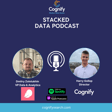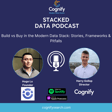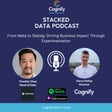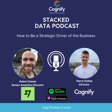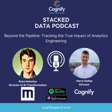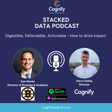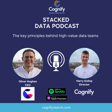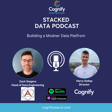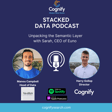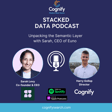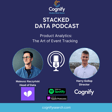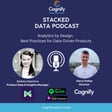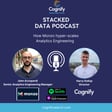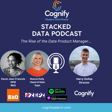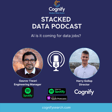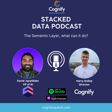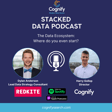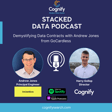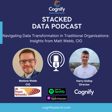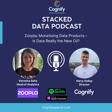
0012 - Challenges for Heads of Data in Scale-ups!
🌟 New episode on The Stacked Podcast featuring an incredible guest, Joao, the Head of Data at Plum. We dive deep into the Challenges of Building a Data Team in a Start-up. 🎙️✨
🌐 Introduction: In this episode, we take a journey with Joao, exploring key milestones in his career that led him to leadership in the dynamic world of data.
🚀 Building from the Ground Up: When stepping into a scale-up as the Head of Data. Where do you begin? Joao shares his insights into the crucial first steps and priorities on the to-do list.
💻 Tech Talk: Tech is the backbone of any data team. Joao discusses the overwhelming choices data leaders face when building their tech stack and how technology influences the hiring process.
🤝 Hiring Hacks:Hiring isn't just about filling roles; it's about building a successful team. Joao sheds light on how to decide which roles to hire, the crucial skill sets for an early data team, and how roles evolve as the function matures.
🌐 Cultivating a Data Culture: Tech and team are essential, but how is it all perceived by the business? Joao shares his insights on growing a data culture in a start-up, what defines a good data culture, and common pitfalls to avoid.
📈 Measuring Impact:How do you know if your team is making a real impact? Joao discusses the metrics of success, showcasing value to secure more resources and bigger opportunities.
💡 Facing Challenges:Joao opens up about the common challenge of being under-resourced as a Data Leader in a rapidly growing organisation and how to tackle it head-on.
🚀 Beyond the Horizon:Explore with Joao the additional challenges Data Leaders in start-ups often face, gaining valuable insights into navigating the dynamic landscape.
Here is the link Joao spoke about - https://towardsdatascience.com/how-i-won-singapores-gpt-4-prompt-engineering-competition-34c195a93d41
Tune in now 🎧
And give us a follow and a rating, your feedback means the world to me!
✨ Don't miss out – it's a knowledge-packed episode you won't want to skip! 🚀🌟
#DataLeadership #Startups #PodcastLaunch #TechTalks
